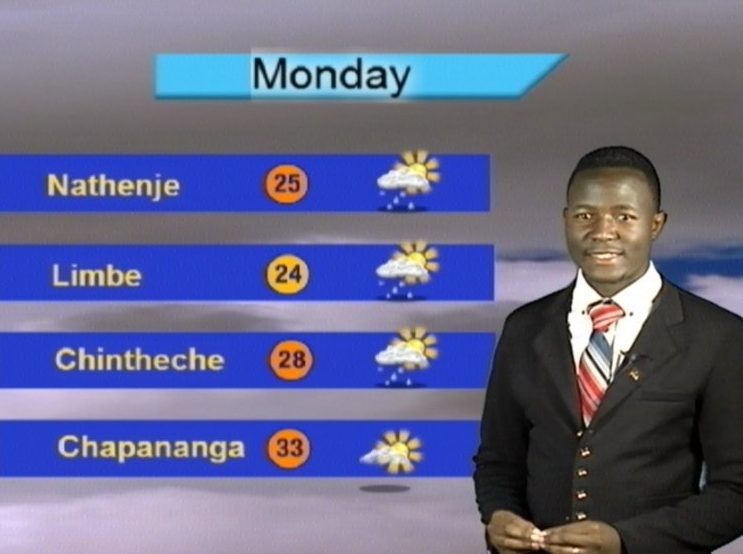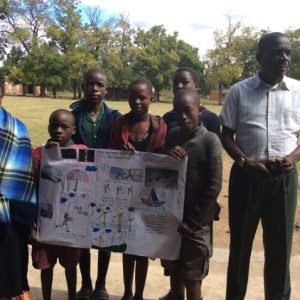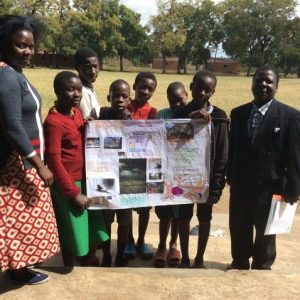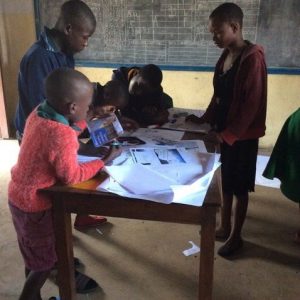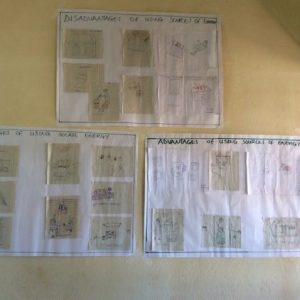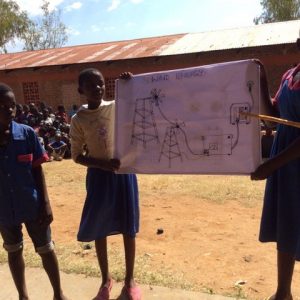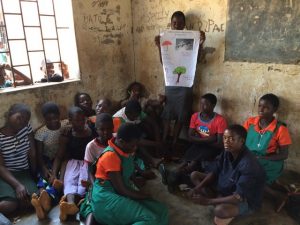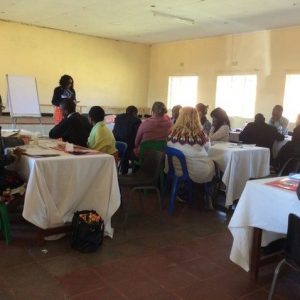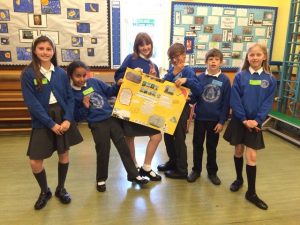WEMC Member Blog: Malawi-UK Teacher Partnership Focuses on Clean, Affordable Energy
The World Energy & Meteorology Council (WEMC) has members across the globe, from a variety of backgrounds and expertise, doing work on a range of important issues to strengthen energy and meteorology education, research and collaboration. We welcome posts from our members communicating the fantastic work that they do. We are delighted to share with you this post written by Noel Banda, a WEMC member from Malawi, who works as a meteorologist and climate specialist in the Malawi Department of Climate Change and Meteorological Services. If you are interested in becoming a WEMC member (it’s free!), find out more by clicking here.
Published: 6th August 2019
Noel Banda (Meteorologist Department of Climate Change and Meteorological Services, Malawi & WEMC Member). Edited by Kit Rackley.
On Friday 31st May 2019, the Norwich-Dedza Partnership (UK) cooperatively organised a teachers conference at Panjira Lodge Conference Centre in Dedza, Malawi. The conference comprised of teachers from several schools from Dedza, Malawi and Norwich, United Kingdom. The main focus was on ‘Clean, Affordable Energy for All’, a British Council ‘Connecting Classrooms’ Project. The conference was graced by the presence of Noel Banda, a meteorologist and climate specialist in the Department of Climate Change and Meteorological Services as well as a member of the World Energy and Meteorology Council who shared on the topic Climate Change and Clean Energy in Malawi. The presentation brought the teachers closer to introduction to climate and meteorological services with examples of services provided in Malawi.
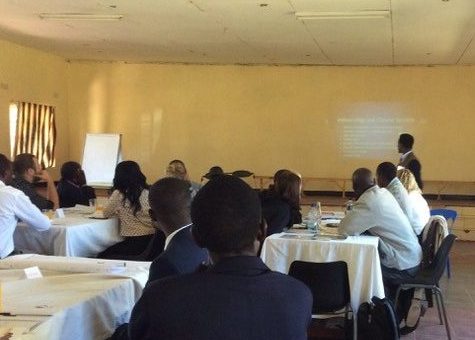
Noel Banda presents his presentation on ‘climate change and clean energy in Malawi’ to local teachers, and their visiting colleagues from Norwich, UK.
Noel linked climate change and recent development energy sector in Malawi as well as climate services for energy sector. For example, rainfall seasonal forecast and short term forecast is essential for hydro-electric power generation and management of a schedule for equipment maintenance and planning in advance for different scenarios. These include extremely heavy rainfall or prolonged dry spells which result in rise in water levels or water scarcity. Provision of climate services to energy sector enables improved sustainability, resilience and efficiency of energy systems under ever-changing weather and climate conditions.
The energy sector is faced by several challenges including unpredictable and highly variable rainfall which in return affect Lake Malawi water levels- the main water source for Malawi hydro-electric power in generation. Energy resources and services will highly be affected by ever changing climate as well as increase in intensity and frequency of extreme climate and weather events.
Huge part of Malawi’s population in urban as well as remote areas still depend on firewood and charcoal. About 86% of the country’s total energy use comes from biomass and 96% of households utilizing firewood or charcoal for cooking (Zalengera, 2014). This led to environmental degradation, deforestation and air pollution among other problems, he added.
Noel also shared, on clean and sustainable energy according to the UN Sustainable Development Goals 7 (SDG7), that we must make sure everyone has access to clean, reliable and affordable energy which is viable and cost-effective way to electrify where main power grid is not accessible. Suggested actions towards affordable and sustainable energy in Malawi include the promotion and raising awareness about clean energy starting from local community level. He also suggested building capacity for local manufacturing and installation of clean energy power sources like solar energy, solar lamps etc.
Noel finally highlighted on opportunities in clean energy:
- Sustainable and reliable energy provides new opportunities for growth; enables businesses to grow, generates jobs and creates new markets
- Access of electricity in remote areas far from the main grid (rural electrification)
- Clean energy has a potential to improve essential services like at health and education (children can study at night)
- Clean energy can replace household fossil fuel based technologies which could cause respiratory problems due excess smoke inhalation
- Clean energy could help to deal with massive deforestation due to reduced reliance of wood fuel.💡
You can follow Noel Banda and his work on Twitter (@meteo_noelbanda) and LinkedIn. Download a PDF of Noel’s presentation here.
Teachers' Conference Norwich/Dedza School Links/Partnership.Empower Girl Child and Male champion through promoting inclusive education. Humbled to be guest speaker on Climate Change and Sustainable Clean Energy in Malawi. @WEMCouncil @WMO @BritishCouncil @ConnectSDGs pic.twitter.com/9NA31we4cZ
— Noel Banda (@Meteo_NoelBanda) June 3, 2019
Image gallery showing contributions to the Norwich-Dedza ‘Clean, Affordable Energy for All’ British Council event led by the Norwich-Dedza Partnership.
Photo credits: Norwich-Dedza Partnership.
- Contribution from a group of school students from Dedza, Malawi
- Contribution from a group of school students from Dedza, Malawi
- Dedza students working on their contribution
- Contributions from a group of school students from Dedza, Malawi
- Contribution from a group of school students from Dedza, Malawi
- Contribution from a group of school students from Dedza, Malawi
- Contribution from a group of school students from Dedza, Malawi
- Teachers from Dedza, Malawi and Norwich, UK participate in the event’s conference
- Contribution from a group of school students from Norwich, UK
- Contribution from a group of school students from Norwich, UK
References:
Zalengera (2014). Overview of the Malawi energy situation and A PESTLE analysis for sustainable development of renewable energy. Renewable and Sustainable Energy Reviews.
Disclaimer: This post represents the views of the author and do not necessarily reflect the view of WEMC or any other agency, organization, employer or company.
WEMC Member Guest Blogs & Contributions:
- How hydrological cycles impact the worldwide energy industry (November 2019) – Vasilis Pappas, Senior Meteorologist, Trianel GmbH
- Should every company be considered an ‘energy company’? (October 2019) – Michael Ferrari, Managing Partner & Principal of Atlas Research Innovations
- The Climate Pocketbook: An example of educational outreach from experts (August 2019) – Sebastian Sterl, Researcher on Energy & Climate, Free University of Brussels (VUB)
- Malawi-UK Teacher Partnership Focuses on Clean, Affordable Energy (August 2019) – Noel Banda, Meteorologist & Climate specialist, Malawi Department of Climate Change and Meteorological Services
- Global Wind Atlas wind resource maps now available for every country (January 2019) – Oliver Knight, Senior Energy Specialist, The World Bank
- Prescient Weather’s World Climate Service launches “significant upgrade” (December 2018) – Jan Dutton, CEO, Prescient Weather


